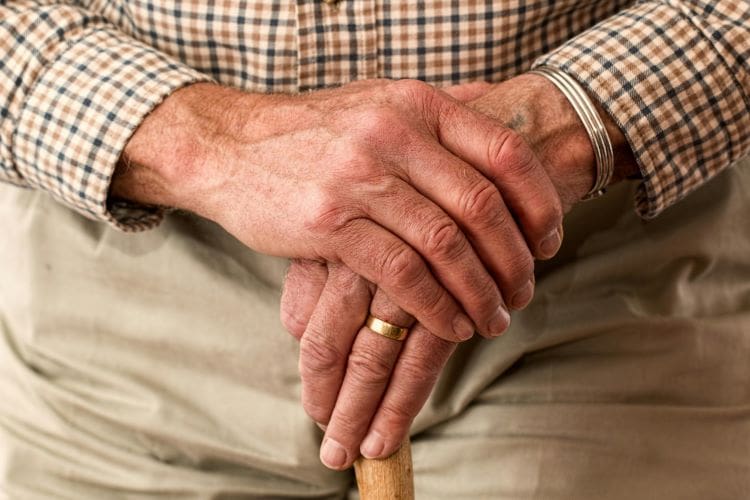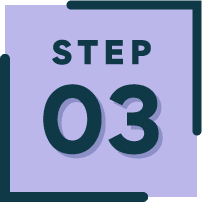How does equity release work?
An equity release mortgage allows those who are between 55 and 95 to release equity from their home that has been built up over time through mortgage payments. The amount you borrowed, plus interest, is then repaid by selling your home.
The equity you receive from your property can be used for things like debt consolidation, helping a family member, or going on that dream holiday.
There are two main types of equity release – lifetime mortgages and home reversion plans.
What is a lifetime mortgage?
A lifetime mortgage equity release plan is a loan which is paid as a tax free lump sum and secured against your home. You will need to meet a minimum age requirement for your lender, typically 55 years old. The percentage of the property value that can be released is dependent on the person’s age, state of health and the value of the property.
You do not have to make regular repayments, if you prefer, the interest can be added to the capital. The loan plus interest is repaid when your home is sold, when you die or move into long-term care.
One thing you should keep in mind is that if you chose not to make repayments, the amount of interest that is accrued can build up substantially, leaving you with a large lump sum to pay off when you or your family come to pay off the loan.
Lifetime mortgage rates are either fixed or tracker rates. They can also come with a “no negative equity” guarantee. This means that after you die and your property is sold, if the mortgage cannot be repaid, your beneficiaries will not be required to pay off the difference.
- Lifetime mortgages can affect any means-tested benefits that you may be eligible for, as well as the amount of tax that you pay.
- The amount of inheritance that you leave your family or friends when you die will also be affected. This is because the loan amount and interest will be deducted from the value of your property when sold.
- If you decide to move house, you will have to transfer your lifetime mortgage to your new home. The new property will have to meet the lender’s criteria as suitable security for the mortgage. This can include a minimum property value and the property construction type; e.g. does it have a pitched roof or is it made from stones? The requirements will vary from lender to lender, therefore consulting an expert to find out the most suitable lender is key.
- If you repay the lifetime mortgage early, there may be early repayment fees. These are usually a small percentage of the amount you are repaying.
- “No negative equity” guarantees will normally apply, meaning that the total amount borrowed plus interest will never exceed the total value of your property.
With some lifetime mortgages you can have a drawdown facility which allows you to make smaller withdrawals instead of a one-time lump sum. Essentially these are regular payments.
In turn, this can reduce the amount of interest which is accrued on the loan, as you only pay interest on the money you have taken out.
A downside to these plans is the fact that the total amount you can borrow is usually lower than on a normal single-advance lifetime mortgage. On top of this, every time you take money out of your cash reserve, you will normally be charged at current interest rates. Therefore, it can make it a little more difficult to keep track of how much you will be charged.
What is a home reversion plan?
A home reversion equity release plan allows you to sell a part or all of your property at less than the market value in exchange for a tax-free lump sum.
In return you live in the property and won’t need to pay rent on the portion of the property your lender owns. Or you may need to pay a peppercorn rent. This is a very small rent that is paid to the lender, ensuring the property is maintained as a legal leasehold arrangement.
One condition that all lenders will impose is that you must agree to keep the property maintained and insured.
There are no monthly repayments to be made and when you die, the house is sold, and the lender gets their share of the percentage agreed at the beginning of the contract.
You can usually sell between 20% and 60% of the market value of your home and it is available to those who are over 65. The sum you receive will depend not only on the percentage sold but also on your age and on the home reversion provider.
A home reversion plan also allows you to stay in your home until you die or need to go into long term care. As you are selling a share of your home, there are no interest payments to consider. This makes it simpler to plan for the future as you will know exactly what portion is being left as inheritance.
You must consider that a home reversion plan, once committed to, cannot be easily undone – because you are selling part of your property.
- Cash in savings or a regular income from your equity release plan can affect your entitlement to benefits or state support.
- The full value of your house will no longer be part of the inheritance you can pass on to your family, although it’s still possible to pass on the part that you don’t sell onto your beneficiaries.
- The amount you receive will be considerably less than the market value of the share of your home that you sell.
- Should house prices increase, then you only see a benefit on the value of the share of the house you own.
- If you pass away or move into long-term care shortly after taking out the plan, a home reversion plan may not offer the best value, as you will have had limited benefit from living in the property rent-free or without interest payments.
What to keep in mind before going ahead with an equity release plan
As with any financial product, equity release does have its drawbacks and is not appropriate for everyone. There are, however, considerable misconceptions around equity release, some of which are not true or over exaggerated.
- Compared to a ‘standard’ mortgage, equity release can be seen as less cost effective as you will usually be charged a higher rate of interest. For those who decide not to make regular repayments the interest on a lifetime mortgage can also accumulate quickly.
- Compared to selling your property on the open market, selling your home through home reversion will often lead to you receiving less money for it.
- If you release too much equity on your property early on, it is possible you will not leave enough for later on in your retirement.
- To move after starting an equity release scheme you may need to pay off some of your mortgage to provide the equity to buy a new property – even if you are downsizing.
- Equity release is hard to reverse should you change your mind, so you need to be sure it is right for you.
- If you are in poor health and die shortly after the scheme has started the costs could be relatively high.
- The funds released from equity release can affect your entitlement to state benefits, and with lifetime mortgages can make you liable to greater tax payments.
Of course, one of the main concerns for those with equity release is that it can affect how much you will be able to pass onto your family in inheritance.
If you are looking for some extra cash in your retirement and you are over 55, equity release can be an excellent way of tapping into the value that has accrued in your property.
To find the right option for you, we work with specialist equity release business partners to ensure you have all the advice you need to make an informed decision.
What can equity release be used for?
Equity release can be used for a variety of things:
- Home improvements
- Care costs
- Mobility equipment
- Paying off your mortgage
- Clearing debts
- Investments
- Helping your family
- New high value items
- A dream holiday
If you’re unsure about what you could use your money for, why not reach out today.
At IMC Mortgage Brokers we work with experts who can assess these factors to find you the most competitive and suitable plan for your needs.
How much can you borrow with equity release?

The amount of borrowing available through an equity release mortgage is determined primarily by the age of the youngest borrower and the value of the property being offered as security.
In general terms, older borrowers will be offered a greater percentage of the property value. This is because for the majority of loans, there are no equity release interest rate payments and full repayment of the mortgage is not made until the borrower dies or needs to move into long term care, at which time the property will be sold and the outstanding loan cleared.
In some circumstances, health and lifestyle may also be considered by lenders when deciding how much may be borrowed.
How much does equity release cost?
It can be hard to specify the exact costs of equity release as everyone’s situation and needs are different. Although there are certain fees and costs we can outline to give you an idea of what to expect during the whole process:
- Arrangement fee – this is a fee you pay to a lender to set-up and ‘arrange’ the product.
- Valuation fee – lenders will require the property to be valued, therefore this will cost you.
- Legal fees – a solicitor will be needed to review all the legal elements of the product.
- Advisor costs – if you use a broker or advisor then they will charge a fee for their services.
- Completion fee – this is a cost that will be paid at completion, it can be added and included within your loan amount.
The equity release application process
Are you wondering what will happen when you start taking the steps to apply for equity release? Our priority is to make sure that you are fully informed, keeping everything as clear as possible, and to find the right Equity Release scheme to cater for your needs now and in the years to come.
Step by Step

The initial conversation
In the first conversation you will:
- Discuss your current situation
- Your broker will outline how they can help
- Ask you about your age, health and lifestyle, as well as your house, income and other loans or schemes you might have in place already
- Make some initial suggestions, and maybe estimate how much you might be able to release
- Answer your questions and deal with concerns

Going over the finer details
Once they have a good understanding of your circumstances and needs we will go away and research which schemes will be suitable for you.
From here they can recommend a scheme and run over how we came to this judgement in a second meeting. It’s also a great idea to bring family members along, as it’s likely the plan will affect them too.
Step 2
Your application and home valuation
Once your broker have collectively decided what plan to go for, they will send you a personal suitability report that sets out recommendations for your current situation. This will highlight the benefits and potential risks of the scheme. It will also highlight any associated costs.
From here you will fill out an equity release application form and send it over to the chosen lender. They will assess your application and organise a home valuation.
Step 3
Confirming the offer
If the lender is satisfied with your application and the property valuation, they will send their loan offer to you, your solicitor and your advisor. If you are all happy and everything is in order, your solicitor will tie up the legal documents and you will be on your way to getting the release money.
Step 4
Getting your money
When the documents have been finalised, the lender will complete their instructions, and the tax-free funds will be released to you through your solicitor.
At this point, the fees for the solicitor and your broker fee will be deducted. Many brokers charge a percentage of the loan amount.
This whole process can usually take around six weeks from when your application is accepted to the money arriving in your account, although it can depend on how long it takes your solicitor to do the legal work.
Why not reach out today to get started on your equity release journey? We will pair you with our trusted equity release business partner who can guide you along your journey.
Step 5Equity release advice
The market for equity release mortgages and later life lending has become much more complex. With many different lenders offering a variety of options depending on individual circumstances and requirements.
Unlike a regular residential mortgage where many lenders use similar criteria, equity release lenders tend to be more specialised and have very specific target markets.
Due to the complex nature of this subject, it is essential that the correct advice is received prior to making an application.
By getting in touch we can pair you with our business partner who specialist in Equity Release, ensuring you are given the best advice possible.
- - Can I release equity from my house if I’m under 55 years old?
- - Could I lose my home?
- - Can I move house with Equity Release?
- - Can I leave an inheritance?
- - Can I borrow more if my property's value increases?
- - I've already got an equity release plan - can I switch?
- - Can I repay the equity release plan?
- - Can I release the equity in my holiday home or second home?











